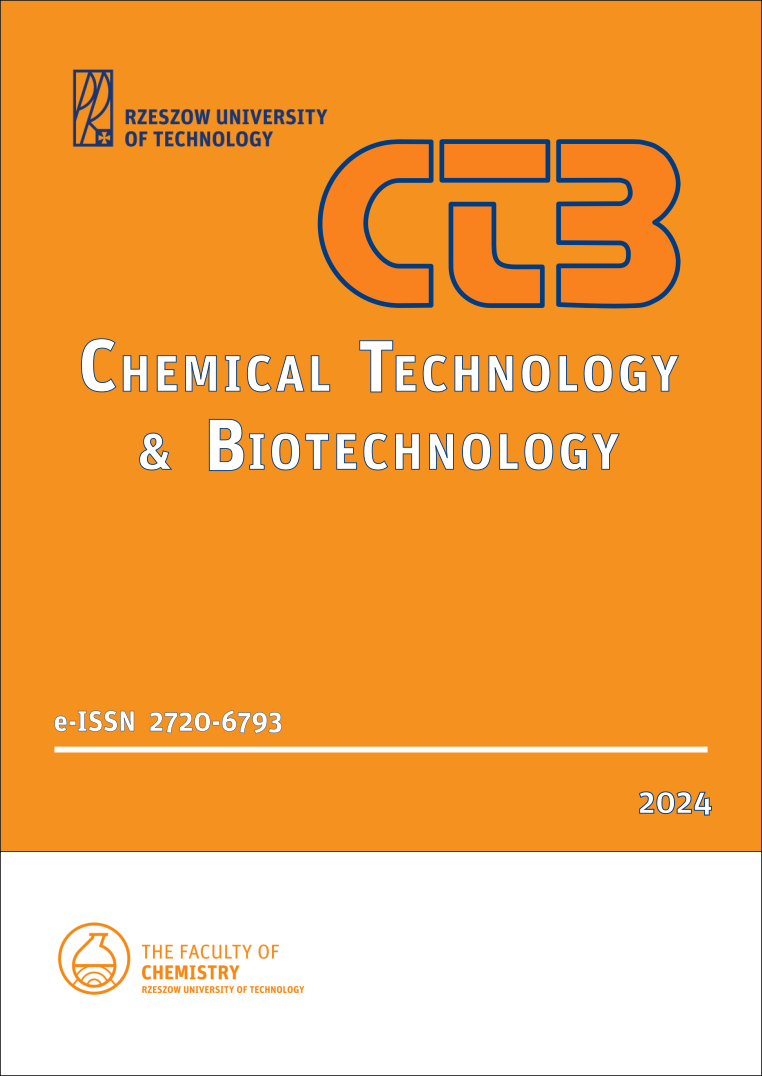Abstrakt
Rak nerki (RCC) oraz rak pęcherza moczowego (BC) są jednymi z najczęściej diagnozowanych nowotworów na świecie. Charakteryzują się wysokim wskaźnikiem śmiertelności i nawrotów. W odpowiedzi na rosnące wskaźniki zachorowalności i umieralności naukowcy poszukują innowacyjnych metod diagnostycznych i terapeutycznych. Metabolomika, analizująca poziomy metabolitów, może umożliwić wczesną diagnozę i monitorowanie postępów terapii. W porównaniu z innymi omicznymi technologiami, koncentruje się ona na wynikach aktywności metabolitów, co dostarcza unikalnej perspektywy na procesy zachodzące w komórkach nowotworowych. W analizach metabolomicznych wykorzystuje się m.in. techniki spektroskopii mas. Metody te pozwalają na identyfikację biomarkerów i precyzyjne określenie składu chemicznego próbek biologicznych. Jednak najczęściej stosowaną metodą jest spektrometria mas sprzężona z chromatografią cieczową (LC-MS), która pozwala na osiągnięcie najbardziej wszechstronnego badania przesiewowego metabolomów nowotworów. Ostatnie badania wykazują znaczący postęp w rozpoznawaniu charakterystycznych metabolitów związanych z nowotworami układu moczowego, choć obszar ten pozostaje jeszcze częściowo niezbadany. Badanie krążących metabolitów, zwłaszcza w łatwo dostępnych próbkach takich jak krew czy mocz, wykazuje obiecujące potencjalne zastosowanie w praktyce klinicznej. Wyniki badań wykazują różnice w profilach metabolicznych między różnymi stopniami zaawansowania nowotworu, co może mieć znaczenie kliniczne. Przyszłość tej dziedziny wiąże się z rosnącą liczbą kohort klinicznych, standaryzacją przygotowywania próbek i dalszymi udoskonaleniami czułości i szybkości instrumentów. Metabolomika oparta na LC-MS ma potencjał przyczynić się do poprawy diagnostyki, terapii i jakości życia pacjentów z nowotworami układu moczowego. Jednak istnieją wyzwania, takie jak brak jednolitych metodologii i zrozumienia determinant metabolitów, które wymagają dalszych badań i innowacji.
Bibliografia
Wang, W., Rong, Z., Wang, G. et al. Cancer metabolites: promising biomarkers for cancer liquid biopsy. Biomark Res. 11, 66 (2023).
Nizioł, J., Ossoliński, K., Płaza-Altamer, A. et al. Untargeted ultra-high-resolution mass spectrometry metabolomic profiling of blood serum in bladder cancer. Sci Rep. 12, 15156 (2022).
Nizioł J, Ossoliński K, Tripet BP, et al. Nuclear magnetic resonance and surface-assisted laser desorption/ionization mass spectrometry-based metabolome profiling of urine samples from kidney cancer patients. J Pharm Biomed Anal. 193, 113752 (2021).
Xin Ma, Facundo M. Fernández. Advances in mass spectrometry imaging for spatial cancer metabolomics. Mass Spec Rev. 43(2), 21804 (2022).
Macklin, A., Khan, S. Kislinger, T. Recent advances in mass spectrometry based clinical proteomics: applications to cancer research. Clin Proteom. 17, 17 (2020).
Zeki, Ö. C. et al. Integration of GC–MS and LC–MS for untargeted metabolomics profiling. J Pharm Biomed Analysis. 190, 113509 (2020).
Schmidt, D. R., Patel R., Kirsch D. et al. Metabolomics in cancer research and emerging applications in clinical oncology. CA A Cancer J Clin. 71(4), 333-358 (2021).
Kind T, Tolstikov V, Fiehn O, et al. A comprehensive urinary metabolomic approach for identifying kidney cancer. Analytical Biochemistry. 363(2), 185-195 (2007).
Issaq HJ, Nativ O., Waybright T. et al. Detection of Bladder Cancer in Human Urine by Metabolomic Profiling Using High Performance Liquid Chromatography/Mass Spectrometry. J Urol. 179(6) 2422 2426 (2008).
Oto J., Fernández-Pardo Á., Roca M. et al. LC–MS metabolomics of urine reveals distinct profiles for non-muscle-invasive and muscle-invasive bladder cancer. World J Urol. 40, 2387–2398 (2022).
Yang M., Liu X., Tang X. et al. LC-MS based urine untargeted metabolomic analyses to identify and subdivide urothelial cancer. Front. Oncol. 13, 1160965 (2023).
Lin L., Yu Q., Yan X. et al. Direct infusion mass spectrometry or liquid chromatography mass spectrometry for human metabonomics? A serum metabonomic study of kidney cancer. Analyst, 135(11) 2970-2978. (2010).
Lin L., Huang Z., Chen Y. et al. LC-MS-based serum metabolic profiling for genitourinary cancer classification and cancer type-specific biomarker discovery. Proteomics. 12, 2238–2246 (2012).
Liu X., Zhang M., Cheng X. et al. LC-MS-Based Plasma Metabolomics and Lipidomics Analyses for Differential Diagnosis of Bladder Cancer and Renal Cell Carcinoma. Front. Oncol. 10, 717 (2020).
Bar N., Korem T., Weissbrod O. et al. A reference map of potential determinants for the human serum metabolome. Nature. 588, 135–140 (2020).
Huang Z., Lin L., Gao Y. et al. Bladder cancer determination via two urinary metabolites: a biomarker pattern approach. Mol Cell Proteomics. 10(10) M111.007922 (2011).
Putluri N., Shojaie A., Vasu V.T. et al. Metabolomic profiling reveals potential markers and bioprocesses altered in bladder cancer progression. Cancer Res. 71(24) 7376-86 (2011).
Alberice J.V., Amaral A.F.S., Armitage E.G. et al. Searching for urine biomarkers of bladder cancer recurrence using a liquid chromatography-mass spectrometry and capillary electrophoresis-mass spectrometry metabolomics approach. J Chromatogr A. 1318, 163-70 (2013).
Jin X., Yun S.J., Jeong P. et al. Diagnosis of bladder cancer and prediction of survival by urinary metabolomics. Oncotarget. 5(6) 1635-1645 (2014).
Shao C.H., Chen C.L., Lin J.Y.et al. Metabolite marker discovery for the detection of bladder cancer by comparative metabolomics. Oncotarget. 8(24) 38802-38810 (2017).
Łuczykowski K., Warmuzińska N., Operacz S.,et al. Metabolic Evaluation of Urine from Patients Diagnosed with High Grade (HG) Bladder Cancer by SPME-LC-MS Method. Molecules. 26(8) 2194 (2021).
Zhang M., Liu X., Liu X. et al. A pilot investigation of a urinary metabolic biomarker discovery in renal cell carcinoma. Int Urol Nephrol. 52(3) 437-446 (2020).
Tan G., Wang H., Yuan J. et al. Three serum metabolite signatures for diagnosing low-grade and high grade bladder cancer. Sci Rep. 7, 46176 (2017).
Sahu D., Lotan Y., Wittmann B. et al. Metabolomics analysis reveals distinct profiles of nonmuscle invasive and muscle-invasive bladder cancer. Cancer Med. 6(9) 2106-2120 (2017).
Vantaku V., Donepudi S.R., Piyarathna D.W.B. et al. Large-scale profiling of serum metabolites in African American and European American patients with bladder cancer reveals metabolic pathways associated with patient survival. Cancer. 125(6) 921-932 (2019).
Amara C.S., Ambati C.R., Vantaku V. et al. Serum Metabolic Profiling Identified a Distinct Metabolic Signature in Bladder Cancer Smokers: A Key Metabolic Enzyme Associated with Patient Survival. Cancer Epidemiol Biomarkers Prev. 28(4) 770-781 (2019).

